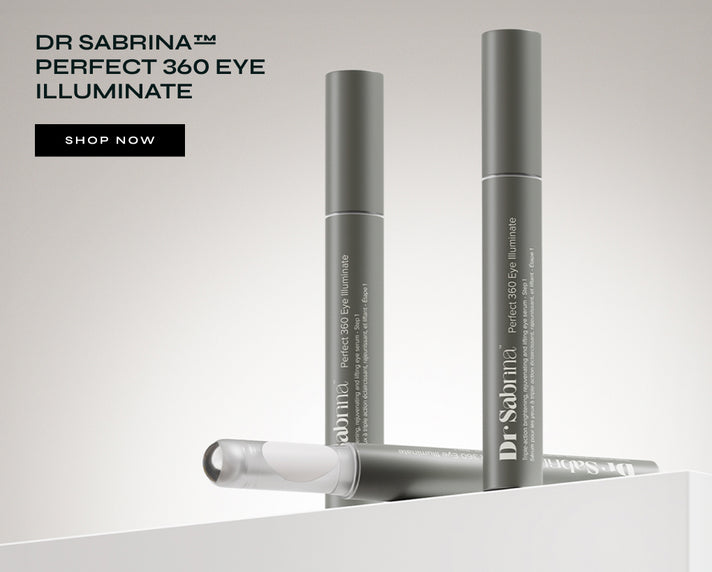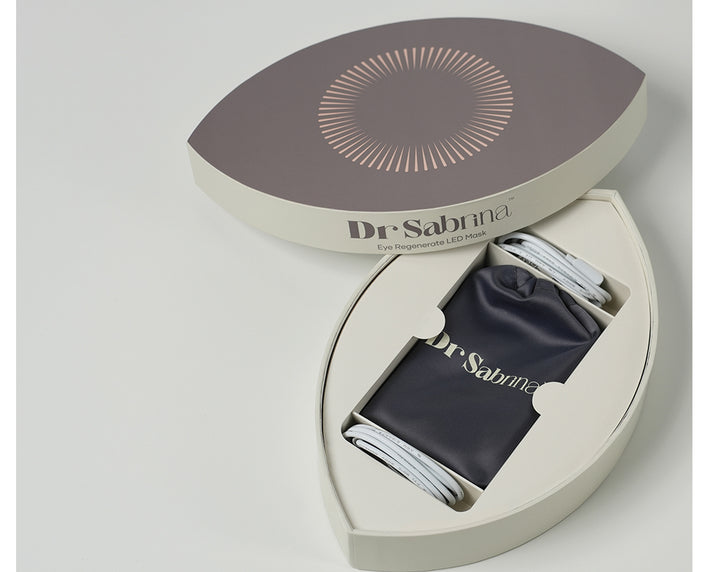Eye Serum
Can Your Eyes Get Sunburnt? Symptoms, Causes and More

When we think of sunburn, the first image that comes to mind is red, peeling skin after a day at the beach. But can your eyes get sunburnt? Surprisingly, yes! Your eyes are just as vulnerable to the sun’s harmful rays as your skin. Protecting them is essential for maintaining eye health and preventing painful conditions caused by excessive sun exposure.
How does sunburn affect the eyes?
Can you sunburn your eyeballs? Technically, yes, you can. An overexposure to UV rays causes sunburn on your eyes, which is often referred to as photokeratitis. This condition damages your clear, front part of the eye called the cornea. Photokeratitis does not burn your eyeball itself but affects the cornea and causes discomfort and inflammation.
The signs that show you have sunburnt eyes include redness, a gritty feeling, tearing, and sensitivity to light.
Causes of Sunburnt Eyes
Sunburnt eyes can be caused due to numerous reasons, not just under a burning sun. Activities like skiing, spending time on water, or even walking in high altitudes increase your exposure to UV rays. Reflection from snow, water, or sand amplifies the risk, making it more likely that your eyes get sunburnt.
Symptoms of Sunburnt Eyes
If you have ever wondered if your eyes can get sunburnt, here are some common symptoms to look out for:
1. Redness and Irritation:
The first symptom that indicates you sunburnt your eyes is noticeable redness or irritation.
2. Puffy Eyes Sunburn:
Swollen eyelids or under-eye areas are typical when the delicate skin around your eyes gets sunburnt.
3. Pain and Gritty Feeling:
It might feel like sand is stuck in your eyes.
4. Blurry Vision:
You may suffer from blurred vision due to sun damage.
5. Sensitivity to Light:
Bright lights may become unbearable.
Preventing Sunburn on Your Eyes

Here are some tips to protect your vision and avoid sunburning under the eyes:
Wear UV-Protective Sunglasses:
Select sunglasses that block 100% of UVA and UVB rays.
Use a Wide-Brimmed Hat:
A hat shields not only your facial skin but also your eyes against direct sunlight.
Avoid Peak Sun Hours:
Stay indoors between 10 a.m. and 4 p.m. when UV rays are strongest.
Don't Forget Eye Creams:
Hydrate and protect the skin with the best eye serum online to prevent damage to the sensitive under-eye area.
Cold Compress:
Place a clean, cold washcloth over closed eyes to help decrease swelling.
Hydration:
Drink water. Water can help heal the delicate tissue in and around your eyes.
Moistening Eye Drops:
These drops can soothe burning and help keep your eyes moist.
Avoid Further Exposure:
Stay indoors and avoid bright light until symptoms subside.
Consult an eye doctor if the symptoms persist.
Long-Term Effects of Sunburnt Eyes
Repeated exposure to UV rays without any protection may lead to serious eye problems like cataracts, macular degeneration, or even eye cancer. Therefore, protecting your eyes is as important as protecting your skin while stepping out into the sun.
Interestingly, alternative treatments can be complementary to the protective measures you take. For example, Red Light Therapy Benefits include the repair and rejuvenation of skin damaged by the sun. Research indicates it can reduce inflammation and promote healing, making it an excellent addition to your post-sun exposure skincare routine.
Conclusion
So, do eyes get sunburnt? Absolutely. Sunburn in the eyes may cause pain, irritation, and possibly long-term damage if neglected. Whichever question you're seeking a solution for, whether it's “can you get your eyes sunburnt” or “can you sunburn your eyeballs,” the answer is one and the same: you must protect your eyes just like you protect your skin.
Incorporating small, simple habits in your daily life, like wearing sunglasses, applying moisturising products like eye serums, and staying in the shade, can keep your eyes safe and healthy. Don't forget to take care of the sensitive skin around your eyes either, as sunburnt eyes and sunburnt under eyes are all too common.
Keep your eyes safe, and they’ll continue to serve you well for years to come.
Frequently Asked Questions
1. Can your eyes get sunburnt?
Yes, your eyes can get sunburnt due to overexposure to harmful UV rays, which may result in a condition called photokeratitis.
2. What are the symptoms of sunburnt eyes?
Symptoms include redness, irritation, sensitivity to light, blurry vision, and sometimes puffy eyes and sunburn around the eyelids.
3. Can you sunburn your eyeballs?
Though not the eyeball itself, you may get sunburnt on your cornea—the clear surface of the eye—which is painful and sore.
4. How do I prevent sunburnt eyes?
You can wear a wide-brimmed hat and sunglasses with 100% UV protection before stepping out into the sun. Additionally, hydrating skincare products like eye serums can help with your under-eye skin health.
5. What should I do if my eyes are sunburnt?
Stay indoors and gently apply a cold compress to your eyes for some relief. Use lubricating eye drops while making sure you stay well-hydrated. Consult an eye doctor if the symptoms persist.
















